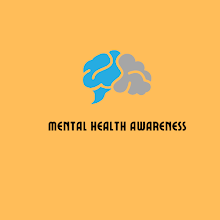Facts About Anxiety Attack & Difference Between Anxiety Attack and Panic Attack
.jpg)
Experiencing occasional anxiety is an everyday part of the lifestyle. But human beings with Anxiety Attack issues regularly have extreme, excessive, and continual worry and worry about regular situations. Frequently, anxiety problems involve repeated episodes of unexpected emotions of intense anxiety and worry or terror that attain a peak within minutes (panic attacks).
Those emotions of hysteria and panic intervene with each day sports, are tough to manipulate, are out of share to the real danger, and may remain a long term. You may avoid places or conditions to prevent those emotions. Signs and symptoms can also begin all through early life or the teen years and hold into maturity. Examples of tension issues consist of generalized anxiety sickness, social anxiety sickness (social phobia), precise phobias, and separation tension disorder. You may have multiple anxiety diseases. Sometimes anxiety results from a medical condition that needs remedy.
Children with sensory challenges who aren't handled in adolescence regularly grow into adults whose each day lives continue to be laid low with their incapacity to correctly and accurately interpret sensory messages. These "sensational adults" may additionally have problems acting workouts and sports involved in work, near relationships, and pastimes. Due to the fact adults with SPD have struggled for the maximum of their lives, they will also enjoy despair, underachievement, social isolation, and/or other secondary emotional or social outcomes. Kids and adults who received and benefited from therapy in youth may additionally though discover themselves struggling after they reach new developmental tiers and/or life experiences. For instance, a teen who has adapted to the challenges of high faculty might also leave domestic for university and discover that residing in the greater chaotic setting of a dormitory triggers new signs. In instances like these, "booster" remedies or counseling that increases self-expertise and offers techniques for adapting to the new situation is frequently extraordinarily helpful.
Causes of Anxiety Attack:
- Work or college pressure.
- Monetary pressure.
- Circle of relatives or relationship problems.
- Divorce, separation, or bereavement.
- Concerns about parenthood or being a caregiver.
- Worry approximately the environment or weather change.
- Converting life conditions, including moving house or converting jobs.
- Decreased mobility or physical characteristics.
- Lack of mental characteristics, for example, brief-time period memory
- Having a diagnosis of a chronic fitness circumstance.
Signs & Symptoms of Anxiety Attack:
- Feeling frightened, restless, or tense.
- Having a sense of forthcoming risk, panic, or doom.
- Having an extended heart fee.
- Breathing hastily (hyperventilation).
- Sweating.
- Trembling.
- Feeling vulnerable or tired.
- Problem concentrating or considering anything apart from the prevailing fear.
- Having trouble slumbering.
- Experiencing gastrointestinal (GI) problems.
- Having trouble controlling fear.
Difference Between Anxiety and Panic Attack:
Anxiety Attack
- A reaction to a perceived stressor or hazard.
- Feelings of hysteria may additionally build steadily through the years.
- Symptoms can vary in depth from slight to extreme.
- Signs and symptoms may additionally succeed for longer durations.
Panic Attack:
- Commonly occur with a trigger, however, can occur without one.
- Signs and symptoms commonly seem.
- Signs are disruptive and might contain a feeling of detachment.
- Commonly subside after a couple of minutes.
Can anxiety lead to a panic attack?

Treatments to Recover From Anxiety Attack:
- Cognitive behavioral therapy (CBT).
- Medications, including some forms of antidepressants.
- Guide businesses for human beings with specific situations.
- Relax your stiff muscle.
- Be the boss of your thought.
- Find the triggers.
Lifestyle Changing tips:
- Prioritize sleep. Sleep is interconnected with intellectual fitness.
- Live active and go out of doors. Day-by-day workout has been shown to assist alleviate symptoms of tension and melancholy.
- Vitamins: Recognition of excellent vitamins.
- Limit alcohol: Avoid or limit alcohol and different substances.
- Meditation: Practice meditation.
- Balanced Diet: Eat a balanced diet.

%20(1).png)

%20(1).jpg)
2 Comments
This comment has been removed by the author.
ReplyDeleteI will do it
Delete